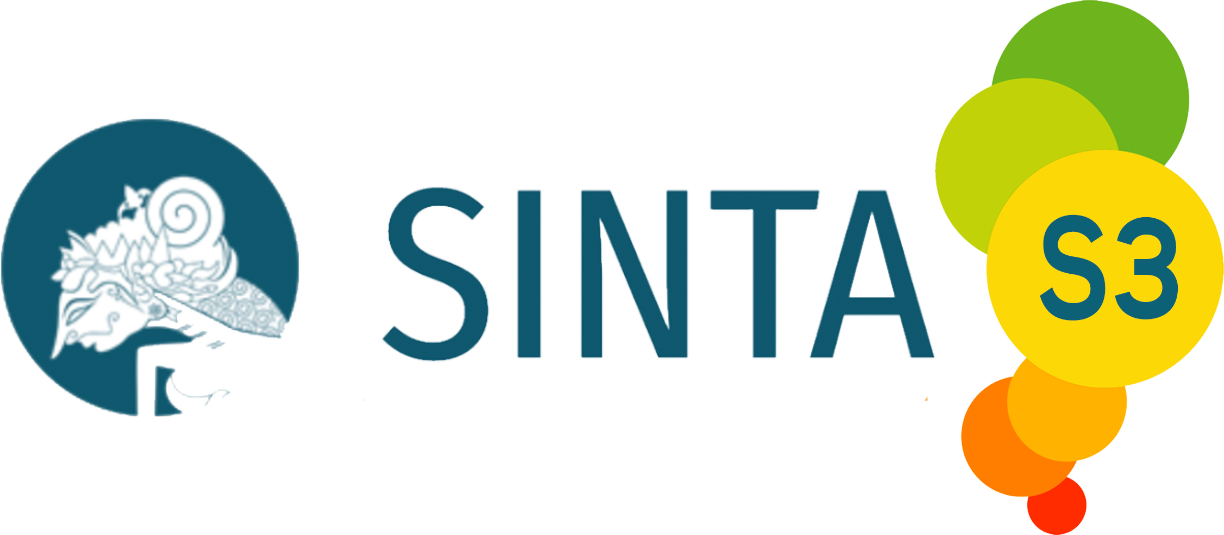Pengaruh adversity quotient dan emotional quotient terhadap prestasi belajar matematika
Authors
Baiq Risma Aulia , Sri Subarinah , M. Gunawan SupiarmoDOI:
10.29303/jm.v7i3.9744Published:
2025-07-21Issue:
Vol. 7 No. 3 (2025): Edisi SeptemberKeywords:
Adversity Quotient, Emotional Quotient, Mathematics Learning AchievementArticles
Downloads
How to Cite
Downloads
Metrics
Abstract
Low student math learning achievement is still a problem that is often encountered. Internal factors such as adversity quotient and emotional quotient are thought to influence student learning achievement. This study aims to determine the effect of adversity quotient and emotional quotient on students' mathematics learning achievement both partially and simultaneously. This research uses a quantitative approach with ex post facto method. The population of this study was class VIII as many as 200 students. The sample used was 133 students who were determined using purposive sampling technique. The instruments in this study were adversity quotient questionnaire, emotional quotient questionnaire and math learning achievement test. The instruments were validated by two experts. By using regression analysis, the results obtained: 1) there is a positive and significant effect of adversity quotient on mathematics learning achievement of students in class VIII MTsN 3 Mataram in the 2024/2025 school year with a contribution of 7.2%; 2) there is a positive and significant effect of emotional quotient on mathematics learning achievement of students in class VIII MTsN 3 Mataram in the 2024/2025 school year with a contribution of 12.9%; 3) there is a positive and significant effect of adversity quotient and emotional quotient on mathematics learning achievement of students in class VIII MTsN 3 Mataram in the 2024/2025 school year with a contribution of 11.7%.
References
Ainun, R. A., Rosidah, & Hamda. (2022). The Effect of Learning Style, Emotional Intelligence, and Adversity Quotient on the Second-grade Students’ Mathematics Learning Achievement of Islamic Senior High School. Journal of Education and Learning Innovation, 2(2), 88–98. https://doi.org/10.35877/454ri.eduline746
Apria, C. S., Sarjana, K., Lu’luilmaknun, U., & Azmi, S. (2024). Pengaruh Emotional Quotient dan Emotional Quotient terhadap Prestasi Belajar Matematika Siswa Kelas VIII Semester Ganjil di SMP Negeri 2 Pujut Tahun Ajaran 2023/2024. Αγαη, 15(1), 37–48. https://doi.org/https://doi.org/10.23969/jp.v9i1.13016
Apryanto, T., & Lilis Herlina. (2020). Analisis Prestasi Belajar Matematika pada Masa Pandemi Ditinjau dari Minat Belajar Siswa. Prosiding Seminar Nasional dan Diskusi Panel Pendidikan Matematika Universitas Indraprasta PGRI, 80, 135–144. https://proceeding.unindra.ac.id/index.php/DPNPMunindra/article/view/4774/724
Aristia, B. E., Sarjana, K., Junaidi, & Turmuzi, M. (2023). Hubungan antara Adversity Quotient (AQ) dan kecerdasan logis matematis terhadap hasil belajar matematika siswa kelas VIII SMP Negeri 1 Terara tahun ajaran 2022/2023. Pendas : Jurnal Ilmiah Pendidikan Dasar, 8(3), 2665–2676. https://doi.org/https://doi.org/10.23969/jp.v8i2.10058
Azis. (2021). Pengaruh Kecerdasan Emosional Terhadap Prestasi Belajar Matematika Siswa SMP Negeri 1 Kapontori. Journal of Mathematics and Mathematics Education, 3(2), 1–8. https://doi.org/10.55340/japm.v7i1.384
Chandra, A., Suhaili, N., & Irdamurni, I. (2021). Penggunaan pendekatan open-ended untuk mengembangkan intelektual siswa dalam pembelajaran matematika. Journal Of Educational and Learning Studies, 4(2), 248–253. http://jurnal.globaleconedu.org/index.php/jels/article/view/201/pdf
Goleman, D. (1996). Kecerdasan Emosional. Gramedia Pustaka Utama. https://books.google.co.id/books?id=fYLEGIKrtNYC
Himmah, W. I., & Ayun, Q. (2024). Pengaruh Adversity Quotient terhadap Prestasi Belajar Matematika Siswa. Journal of Educational and Cultural Studies, 2(1), 125–131. https://doi.org/https://doi.org/10.59698/afeksi.v5i6.377
Huda, T. N., & Mulyana, A. (2018). Pengaruh Adversity Quotient terhadap Prestasi Akademik Mahasiswa Angkatan 2013 Fakultas Psikologi UIN SGD Bandung. Psympathic : Jurnal Ilmiah Psikologi, 4(1), 115–132. https://doi.org/10.15575/psy.v4i1.1336
Jaenudin, U., & Sahroni, D. (2021). Psikologi Pendidikan. Lagood’s Publishing: Bandung.
Jaya, Ilham. (2020). Pengaruh Kecerdasan Emosional Terhadap Prestasi Belajar Peserta Didik MAN Wajo. Undergraduate thesis, IAIN Parpare.
Lenggono, B., Prabawanti, C., & Mujidin, M. (2023). Pengaruh Adversity Quotient, Efikasi Diri, dan Self-Regulated Learning terhadap Prestasi Siswa SMA Islam Terpadu. Jurnal Ilmu Pendidikan, Psikologi, Bimbingan dan Konseling, 13(3), 632. https://doi.org/http://dx.doi.org/10.24127/gdn.v13i3.7348
Lestari, I. (2017). Pengaruh Kecerdasan Adversitas Dan Konsistensi. Prosiding Seminar Nasional Matematika dan Pendidikan Matematika, ISBN: 978-(Pembelajaran), 162–170.
Nurfitriyanti, M., Rosa, N. M., & Nursa’adah, F. P. (2020). Pengaruh Kemampuan Berpikir Kritis, Adversity Quotient dan Locus of Control Terhadap Prestasi Belajar Matematika. Jurnal Kajian Pendidikan Matematika, 5(2), 263. https://doi.org/10.30998/jkpm.v5i2.5929
Sari, A. N., Wahyuni, R., & Rosmaiyadi. (2016). Penerapan Pendekatan Open-Ended untuk Meningkatkan Kemampuan Berpikir Kritis Siswa Pada Materi Aljabar Kelas VIII SMP Negeri 10 Pemangkat. Jurnal Pendidikan Matematika Indonesia, 1(1), 20. https://doi.org/10.26737/jpmi.v1i1.78
Sarnoto, A. Z., & Romli, S. (2019). Pengaruh Kecerdasan Emosional (Eq) Dan Lingkungan Belajar Terhadap Motivasi Belajar Siswa Sma Negeri 3 Tangerang Selatan. Andragogi: Jurnal Pendidikan Islam dan Manajemen Pendidikan Islam, 1(1), 55–75. https://doi.org/10.36671/andragogi.v1i1.48
Siregar, S. (2013). Metode Penelitian Kuantitatif: Dilengkapi dengan Perbandingan Perhitungan Manual & SPSS. Jakarta: Kencana.
Situmorang, A. S., Priono, H., & Panjaitan, S. M. (2023). Pengaruh Motivasi Belajar terhadap Prestasi Belajar Matematika Siswa Kelas X SMA Negeri 3 Sibolga T.A 2021/2022. Journal on Education, 6(1), 2264–2271. https://doi.org/10.31004/joe.v6i1.3232
Stoltz, P. G. (2000). Adveristy Quotient: Mengubah Hambatan Menjadi Peluang. Grasindo. https://books.google.co.id/books?id=pJfgeBcKF3EC
Sulastri, T., Suryana, Y., & Hidayat, S. (2021). Pengaruh Kecerdasan Emosional terhadap Prestasi Belajar Matematika Siswa Kelas V Sekolah Dasar Negeri 1 Manonjaya. Pedadidaktikap: Jurnal Ilmiah Pendidikan Guru Sekolah Dasar, 8(1), 156–165. https://doi.org/https://doi.org/10.17509/pedadidaktika.v8i1.32916
Wahyi, H., Turmuzi, M., Tyaningsih, R. Y., & Azmi, S. (2023). Pengaruh Pendekatan Problem Posing Terhadap Motivasi Dan Hasil Belajar Peserta Didik. Journal of Classroom Action Research, 5, 315–325. https://doi.org/https://doi.org/10.29303/jcar.v5iSpecialIssue.4696
Wahyuni, G., Mujib, A., & Zahari, C. L. (2022). Analisis Kemampuan Berpikir Visual Siswa Ditinjau Dari Adversity Quotient. Jurnal Pendidikan Mandala, 7(2), 289–295. https://doi.org/10.58258/jupe.v7i2.3335
Wuwung, O. C. (2020). Strategi Pembelajaran dan Kecerdasan Emosional. Scopindo Media Pustaka. https://books.google.co.id/books?id=LSrbDwAAQBAJ
Yani. (2019). Pengaruh Kecerdasan Emosional, Kecerdasan Adversitas Dan Motivasi Belajar Terhadap Hasil Belajar Matematika Siswa Kelas XI Ipa SMA Negeri Parepare. S1 Thesis, Pascasarjana.
Zulkarnain, I., Septhiani, S., & Oga Nusantari, D. (2022). Pengaruh Kecerdasan Intrapersonal dan Adversity Quotient terhadap Prestasi Belajar Matematika. Prosiding Seminar Nasional Pendidikan Matematika IV, 4(20), 1–12. https://proceeding.unikal.ac.id/index.php/sandika/article/view/1149
License
Copyright (c) 2025 Baiq Risma Aulia, Sri Subarinah, M. Gunawan Supiarmo

This work is licensed under a Creative Commons Attribution-NonCommercial-ShareAlike 4.0 International License.
















